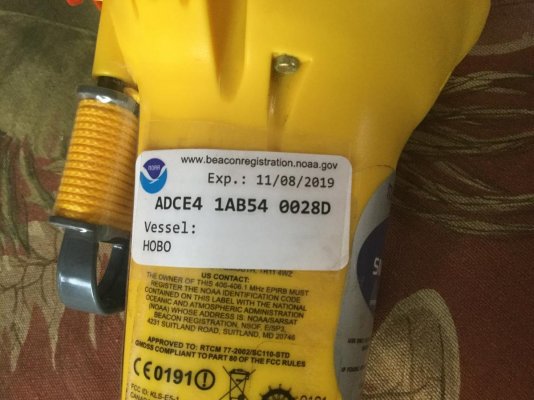seattleboatguy
Senior Member
Right now, the only radio on my boat is an old VHF. I have a "restricted radiotelephone operator" license. I also still have my fcc "amateur radio license" from my sailboat days, but I have no plans to add an HF radio to my trawler. I do plan on visiting Canada in my boat.
I was in the process of applying for a "ship radio station authorization" when I noticed it came with an fcc $220 price tag. I can envision eventually adding stuff like AIS transceiver, EPIRB, and possibly MMSI/DSC. My question is, would I save fcc registration fee money by applying for several of these licenses at once? Is is better to get these licenses from BoatUS or the fcc?
I was in the process of applying for a "ship radio station authorization" when I noticed it came with an fcc $220 price tag. I can envision eventually adding stuff like AIS transceiver, EPIRB, and possibly MMSI/DSC. My question is, would I save fcc registration fee money by applying for several of these licenses at once? Is is better to get these licenses from BoatUS or the fcc?




